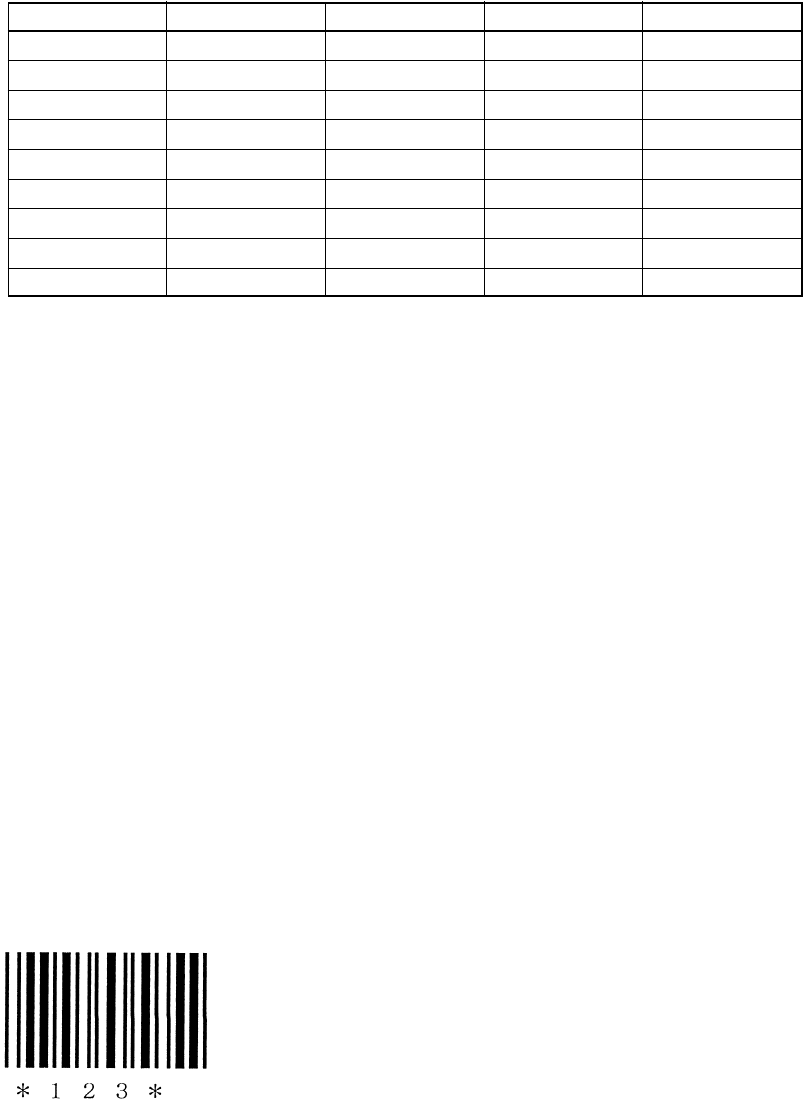
— 59 —
When sending print data, note these points:
(1) Each string of bar code data must begin with a code set select character (CODE A,
CODE B, or CODE C), which selects the first code set to use.
(2) Every special character is specified by a combination of two characters: a brace
“{“ followed by one character. A brace “{“ itself is sent twice consecutively.
SPECIAL CHARACTERS:
<Example>
To print “No.” in code set B, followed by “123456” in code set C, send the following
data string:
GS k <73><10><7Bh 42h> “No.” <7Bh 43h><12><34><56>
• If the printer finds a string of bar code data that does not begin with a code set
select character, it immediately aborts the command processing and handles the
subsequent data as normal data.
• If the printer received a character that is not available in the currently selected code
set, it immediately aborts the command processing and handles the subsequent
data as normal data.
• An HRI character corresponding to either a Shift character or a code select character
is not printed. An HRI character for either a function character or a control character
is treated as a space character.
[Sample Program]
PRINT #1, CHR$(&H1D) + “H” + CHR$(2);
PRINT #1, CHR$(&H1D) + “k”;
PRINT #1, CHR$(4);
PRINT #1, “123” + CHR$(0);
END
[Print Results]
Hex. ASCII Code set A Code set B Code set C
7B53 { S SHIFT SHIFT –N/A
7B41 { A –N/A CODE A CODE A
7B42 { B CODE B –N/A CODE B
7B43 { C CODE C CODE C –N/A
7B31 { 1 FNC1 FNC1 FNC1
7B32 { 2 FNC2 FNC2 –N/A
7B33 { 3 FNC3 FNC3 –N/A
7B34 { 4 FNC4 FNC4 –N/A
7B7B { { “{”“{”“{”
When the data “123” is printed with the code 39


















